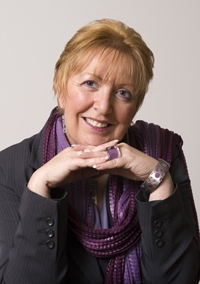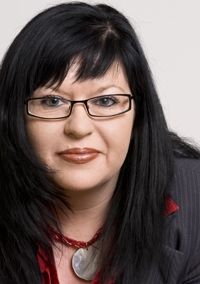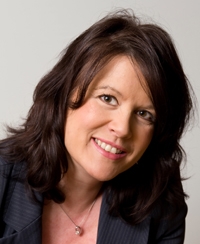About Lovingly Managed
Lovingly Managed’s three founders have all suffered close family bereavements and know what a difficult time it can be. Our personal experiences enable us to understand and empathise with those of you who are either contemplating your own life’s end, or are dealing with the aftermath of the passing of someone close, and are what provided the idea and impetus for the creation of our business. We recognise the need for people to think about what they want for their own passing in advance and also for them to have access to practical support to assist them with all the administrative and other tasks that need to be taken care of at the time of another’s death and afterwards.
Denise Jones LLB (Hons)

I started my legal life as a shorthand secretary when living in Bristol as my parents had moved there with my father’s job when I was 8. I was born in what is now the Celtic Manor hotel, which in the 1950s was a maternity hospital and lived in Pontllanfraith, near Blackwood as a small child.
When I returned to Wales in the early 1980s, I worked as a legal secretary and went to night school to study to become a legal executive. Once that qualification was obtained I used it to apply to what was then the Polytechnic of Wales to undertake a full law degree as a mature student and after qualifying returned to my firm in Bridgend where I had worked as a secretary. I became a fully qualified solicitor and some time later became a partner in the same firm. My specialism area of legal work was what solicitors’ practices call “private client” which usually means Wills, Probate, Court of Protection work and sometimes conveyancing. I did all of those until I retired in 2006 and thereafter formed Lovingly Managed to “fill a gap” and give me more opportunity for a better standard of living as being a partner consisted of very long hours and a stressful life!
I am an only child who has lost both parents and know what it feels like to have to wrap up the lives of your nearest and dearest when you are still grieving. I lost my father when I was only 18 years old. It was completely unexpected. My mother was so numb with shock and grief she was unable to function so I had to pick up the pieces. It was hard coping with all the decision making and practical stuff while watching my mother go to pieces in front of me but I just had to get on with it. I didn’t really have time to grieve myself. By the time my mother died, after a series of strokes and seven years in long-term care, I had been a practising solicitor for a number of years but, even with my legal background, I still found the whole experience very stressful.
In my professional capacity, too, I have witnessed, more times than I care to remember, the trauma bereavement can inflict on people and the strain it can place on those left behind, especially when someone dies without a will and the family have nothing from which to work.
I also experienced my own close call with death when I contracted a particularly bad strain of pneumonia and was in hospital for five days, only recovering after being given experimental drugs. Sadly, another patient with the same strain, who received identical treatment to my own, wasn’t so lucky and died. This event forced me to face my own mortality and I decided to ensure my family knew my wishes in the case of my untimely death. My twins were five years old at the time so, as well as plans for myself, I wrote out all that I wanted for their future. I also left instructions regarding what dress I wanted to be cremated in and where my ashes were to be scattered.
My twins are grown up now, capable of making their own decisions for their own lives. Also, and just as importantly, fashions have changed and so has my choice of dress! Consequently, I’ve updated my plan to reflect my current wishes and will continue to do so periodically, depending on what’s happening in my life as I get older, to ensure my plan is always up-to-date. I get tremendous peace of mind knowing that I have a document which provides all the information anyone would need to organise my funeral and finalise my estate. I strongly believe that everyone should know these things about their loved ones and feel it’s important that the information is on paper and stored safely away for when it’s needed which, let’s face it, it will be. None of us are going to live forever.
Sharon Callow SRN, Welsh speaker

When I was 17 I left Wales to join the army as a nurse which gave me a different perspective on life and death and an understanding that the sorrow of a death, even someone you don’t know, touches you. I always felt huge sympathy for the bereaved families with whom I came into contact during my nursing career but then I suffered a bereavement of my own – the sudden and completely unexpected death of my sister to an act of violence. I can remember doing all the usual, practical things that are required when someone you love dies as well as others which were particular to my sister’s circumstances: collecting the death certificate, calling her friends and informing companies she’d been dealing with that she’d died, as well as identifying her body and liaising with the police on the progress of the investigation.
Just coping with her death, which was obviously unexpected and so a complete shock to my family, was traumatic enough and having to carry out all these additional tasks just added to our distress. On top of that, the manner of my sister’s death meant that my mother also really needed me and having to cope with supporting her on an emotional level, as well as all the organising, placed a real strain on me. I particularly remember my mother calling one very large, national corporation to let them know that my sister had died and being asked for a copy of the death certificate as proof. This devastated her and, to this day, she still finds that memory very upsetting. She couldn’t believe that they could seriously think she would be lying about her own daughter’s death. Of course, they didn’t; they were just following their process and the fact is that most companies who have been providing services to someone who has died will require a copy of the death certificate. The service that Lovingly Managed provides removes the potential for this kind of upsetting interaction. We can liaise with these corporations in a completely dispassionate and business-like manner leaving our clients free to deal emotionally with the loss of someone they loved rather than having to worry about getting photocopies of the death certificate and calling the DVLA!
I am also the single mother of a disabled son who, for many years, had to live in residential care due to the severity of his condition. When my time comes, he will be incapable of making decisions on my behalf so I may have no one to sort out my funeral. Making an End of Life plan means that I can take care of this myself, now, and can relax as I know that my funeral will be carried out in accordance with my wishes. The executor of my estate will have everything he or she needs for probate to proceed smoothly and I can be assured that, should my son outlive me, everyone is aware of what I want for his continued care and for his eventual funeral as he is never going to be capable of making these plans for himself.
Catherine Corless BA (Hons), MA

My first close experience of death was in 1986 when my grandfather died on 22nd December. At the time, my family lived in Dover but my grandmother was in Liverpool. As an only child, my mother had to travel immediately to be with her while my father, brother, sister and I all remained at home for Christmas. My mother and grandmother, neither of whom could drive, found themselves travelling on buses during a Liverpool winter, a couple of days before Christmas, trying to get everything sorted so that my grandfather could be cremated on the 28th December. Looking back my mother says it was the most depressing time of her life. She says now that, had there been a company like Lovingly Managed, she would willingly have handed over all the running around and organisation in a heartbeat as all she felt like doing was sitting in the comfort of my grandmother’s house, making tea and consoling her mother who was numb with grief at the loss of her husband of more than 60 years.
Other than this, I had never really thought a great deal about death and certainly not about planning for death. Then my father was diagnosed with Alzheimer’s. During the early stages of the disease we didn’t really face up to the fact that what this actually meant was my father was dying. As things progressed though, we were ultimately forced to think about his inevitable passing, only to find that my mother had no idea of my father’s wishes – they’d been married for over 40 years but never discussed it – and by then, it was too late to ask him. When he did die, I was in the fortunate position of knowing a funeral director very well, and had knowledge of the process, so was able to organise all that side of things for my mother without any trouble but for a lot of people it’s a whole new experience and they are completely in the dark.
After the funeral there was lots of paperwork to sort through – my father had been an investor but hadn’t really taken any interest in the stock market as his illness took hold so things had just been left. Having to contact all the companies with which he held shares was very time consuming, especially as we weren’t really sure which investments were current and which had been cashed in. Then there was sorting out his pension, cancelling his attendance allowance, transferring the bank accounts and utility bills into my mother’s name and ordering new bank cards, returning mobility aids; the list went on and, as you can imagine, it wasn’t always plain sailing, leading to a lot of frustration and sometimes sheer anger at how insensitive some larger corporations can be at such a difficult time. It’s not that my mother would have been incapable of doing this stuff but she’d never had to – that was my dad’s role – so it was a lot to expect her to start at a time when she was coming to terms with the death of her husband. Consequently, it fell to me and my two siblings. There was a lot of work involved, taking time that none of us really had to spare. We’d have happily offloaded all this admin to someone else to sort out for us.
Also, as the single mother of an only child – a son – who will be 40 when I’m in my early 80s, I’m conscious of the fact that, when my time comes, there’s the possibility that he may not be living anywhere near me – he might even be abroad – and will probably have the stresses and strains of his own life to deal with without having the extra hassle of sorting out my funeral and wrapping up my affairs. And without wishing to do my son, and men in general, a disservice, I’m not convinced that I want him sorting out my funeral – I’m not sure what kind of send off I’d get! Yes, he’d do his best for me I know but, on reflection, I decided to plan most of it myself. This way I have the peace of mind of knowing that I’ll get what I want and he won’t have to worry about organising everything or whether or not I’d be happy with his decisions. I’ve also thought about the worse case scenario of what I’d like his funeral to be like should I not be around to organise things and he dies before he reaches adulthood. While some people may think this is morbid, I don’t. I know it’s highly unlikely to happen but it could and if it does then I want to know that his ashes will be scattered in the same place as mine, at a spot I’ve chosen that we both love.
NB. Catherine is now a grief counsellor